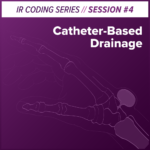Plaintiffs allege they were forced to pay thousands for SNF care following outpatient/observation status assignment.
A federal judge has denied the government’s bid to put a stop to a landmark class-action lawsuit centering on patient status, paving the way for a trial expected to begin later this year.
In Alexander v. Azar, the plaintiffs allege they were forced to pay up to $30,000 apiece for skilled nursing facility (SNF) care after being designated outpatients in observation status, rather than inpatients, according to a press release on the matter by The Center for Medicare Advocacy (CMA).
In his 50-page opinion, U.S. District Court Judge Michael P. Shea, sitting in Connecticut, reportedly denied the government’s motion for summary judgment, motion to “decertify” the suit, and motion to dismiss the case, concluding that the evidence the plaintiffs submitted could reasonably establish that physician decisions about whether to classify patients as inpatients are “meaningfully constrained” by criteria set by Medicare.
The plaintiffs, therefore, may possess a “property interest” in the Medicare coverage they seek, CMA noted: a necessary component of their constitutional due-process claim.
“Although care provided to patients on observation status is often indistinguishable from inpatient care, it does not count toward the three-day inpatient hospital stay requirement for Medicare coverage of nursing home care,” CMA explained in its press release. “This leaves beneficiaries with the burden of paying for – or forgoing – extremely costly nursing and rehabilitative care. The opportunity to appeal is critical because of the severe ramifications that can result from the observation status categorization.”
CMA singled out plaintiff Ervin Kanefsky of Pennsylvania, a 93-year-old World War II veteran who had to pay approximately $10,000 for nursing home care after being hospitalized for a shoulder fracture for five days, as being emblematic of the issue. He was reportedly initially admitted as an inpatient, but later told that the “powers that be” had changed his status to observation before he was discharged.
The plaintiffs’ lead attorney, CMA’s Alice Bers, welcomed the judge’s ruling in a court proceeding initiated eight years ago.
“People who have paid into Medicare their whole lives, and who risk having to pay thousands of dollars for necessary medical care, deserve a fair process to determine whether they will receive Medicare coverage,” she said.
“We look forward to showing at trial that these vulnerable patients have a right to appeal to Medicare as matter of constitutional due process,” added co-counsel Luke Liss of Wilson Sonsini Goodrich & Rosati.
The use and apparent abuse of observation and outpatient status has been a lightning rod for criticism in healthcare circles for years, and it is widely thought that a clear ruling in a high-profile suit such as this will help establish firmer guidelines on the legitimate application.
“Observation status creates all kinds of harm,” said CMA founder and Executive Director Judith A. Stein, JD in a statement to RACmonitor. “Due process for beneficiaries is crucial to trying to mitigate that harm – and due process requires notice AND a hearing so the people who are harmed can challenge it.”
Dr. Ronald Hirsch, MD, FACP, CHCQM, vice president of the Regulations and Education Group at R1 Physician Advisory Services and a member of the Advisory Board of the American College of Physician Advisors and the American Case Management Association, told RACmonitor.com that lingering questions remain about what the ramifications might be, should a suit such as this prove successful.
“This decision is a fascinating read. The judge clearly understands the issues and in fact understands the two-midnight rule better than many hospitals and auditors,” Hirsch said. “I do have a concern that if Medicare patients who are outpatients with observation get immediate appeal rights, the costs to continue care awaiting the appeal decision will fall squarely on the hospital if the QIO (Quality Improvement Organization) agrees observation is appropriate. The three days awaiting the appeal decision will also expose patients to the ongoing risks of hospital care.”













